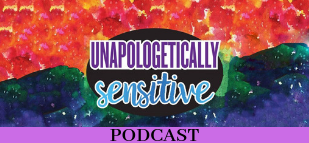Attachment Wounds: OCD, Projection, Managing Dysregulation
Patricia candidly discusses her experiences with attachment wounds, OCD tendencies, projection and trauma responses with Jen, and how this is showing up in their relationship. Patricia shares what her OCD thoughts tend to look like. Through introspection and vulnerability, Patricia reflects on the impact of past traumas on her emotional well-being. Their dialogue underscores the importance of self-awareness, self-care, and resilience in healing from attachment-related struggles.
CO-HOST
Jen Perry, MSEd, MA, LPC
HIGHLIGHTS
Summary
In this conversation, Patricia and Jen discuss their current emotional states and the challenges they are facing. Patricia shares her struggles with attachment wounds, OCD, and trauma triggers, while Jen offers support and understanding. They explore the concept of projection and how it affects their interactions. The conversation emphasizes the importance of self-care and creating space for emotions. Overall, the conversation highlights the complexities of relationships and the need for compassion and empathy.
Takeaways:
- Understanding trauma responses and emotional regulation techniques.
- Exploring the impact of OCD on thought patterns and relationships.
- Navigating attachment wounds and their influence on behavior.
- Recognizing the importance of self-awareness in healing from past traumas.
- Addressing vulnerability and sensitivity in processing emotional challenges.
- Learning to set boundaries and prioritize self-care in relationships.
- Embracing authenticity and openness in communication.
- Coping with uncertainty and distress through emotional expression.
- Building resilience through self-reflection and self-compassion.
- Exploring the connection between somatic experiences and emotional well-being.
- Challenging cognitive distortions and negative self-talk.
- Cultivating empathy and understanding in interpersonal dynamics.
- Validating the full range of human emotions and experiences.
- Practicing mindfulness and conscious decision-making in relationships.
- Recognizing the role of shame and inner criticism in self-perception.
- Naming and addressing personal “gremlins” and self-doubt.
- Modeling emotional authenticity and self-care for others.
- Finding language for complex emotions and internal struggles.
- Embracing vulnerability as a pathway to healing and growth.
- Expressing gratitude for support and shared experiences in the journey towards emotional well-being.
- Understanding trauma responses and emotional regulation techniques.
- Exploring the impact of OCD on thought patterns and relationships.
- Navigating attachment wounds and their influence on behavior.
- Recognizing the importance of self-awareness in healing from past traumas.
- Addressing vulnerability and sensitivity in processing emotional challenges.
- Learning to set boundaries and prioritize self-care in relationships.
- Embracing authenticity and openness in communication.
- Coping with uncertainty and distress through emotional expression.
- Building resilience through self-reflection and self-compassion.
- Exploring the connection between somatic experiences and emotional well-being.
- Challenging cognitive distortions and negative self-talk.
- Cultivating empathy and understanding in interpersonal dynamics.
- Validating the full range of human emotions and experiences.
- Practicing mindfulness and conscious decision-making in relationships.
- Recognizing the role of shame and inner criticism in self-perception.
- Naming and addressing personal “gremlins” and self-doubt.
- Modeling emotional authenticity and self-care for others.
- Finding language for complex emotions and internal struggles.
- Embracing vulnerability as a pathway to healing and growth.
- Expressing gratitude for support and shared experiences in the journey towards emotional well-being.
Chapters (please allow for addition of introduction)
00:00 Introduction and Emotional States
09:01 Exploring Attachment Wounds and Trauma Triggers
30:00 Building Stronger Relationships through Compassion and Empathy
PODCAST HOST
Patricia was a Licensed Clinical Social Worker for over 17 years, but she is now exclusively providing coaching. She knows what it’s like to feel like an outcast, misfit, and truthteller. Learning about the trait of being a Highly Sensitive Person (HSP), then learning she is AuDHD with a PDA profile and RSD, helped Patricia rewrite her history with a deeper understanding, appreciation, and a sense of self-compassion. She created the podcast Unapologetically Sensitive to help other neurodivergent folks know that they aren’t alone, and that having a brain that is wired differently comes with amazing gifts, and some challenges. Patricia works online globally working individually with people, and she teaches Online Courses for neurodivergent folks that focus on understanding what it means to be a sensitive neurodivergent. Topics covered include: self-care, self-compassion, boundaries, perfectionism, mindfulness, communication, and creating a lifestyle that honors you
CO-HOST BIO
Jen Perry, MSEd, MA, LPC has been a psychotherapist for 20 years. She specializes in helping Highly Sensitive People thrive in love, work, and parenting Highly Sensitive Children. Jen is passionate about using mindfulness and compassion-based approaches to ameliorate human suffering.
LINKS
Jen’s Links
Email: Jen@heartfulnessconsulting.com
Jen’s website: https://heartfulnessconsulting.com/
Patricia’s Links
Neurodivergent Online Course– https://unapologeticallysensitive.com/neurodivergent-online-courses/
Receive the top 10 most downloaded episodes of the podcast– https://www.subscribepage.com/e6z6e6
Sign up for the Newsletter– https://www.subscribepage.com/y0l7d4
To write a review in itunes:
- click on this link https://itunes.apple.com/us/podcast/unapologetically-sensitive/id1440433481?mt=2
- select “listen on Apple Podcasts”
- chose “open in itunes”
- choose “ratings and reviews”
- click to rate the number of starts
- click “write a review”
Website–www.unapologeticallysensitive.com
Facebook– https://www.facebook.com/Unapologetically-Sensitive-2296688923985657/
Closed/Private Facebook group Unapologetically Sensitive– https://www.facebook.com/groups/2099705880047619/
Instagram– https://www.instagram.com/unapologeticallysensitive/
Youtube– https://www.youtube.com/channel/UCOE6fodj7RBdO3Iw0NrAllg/videos?view_as=subscriber
Tik Tok–https://www.tiktok.com/@unapologeticallysensitiv
e-mail– unapologeticallysensitive@gmail.com
Show hashtag–#unapologeticallysensitive
Music– Gravel Dance by Andy Robinson www.andyrobinson.com

